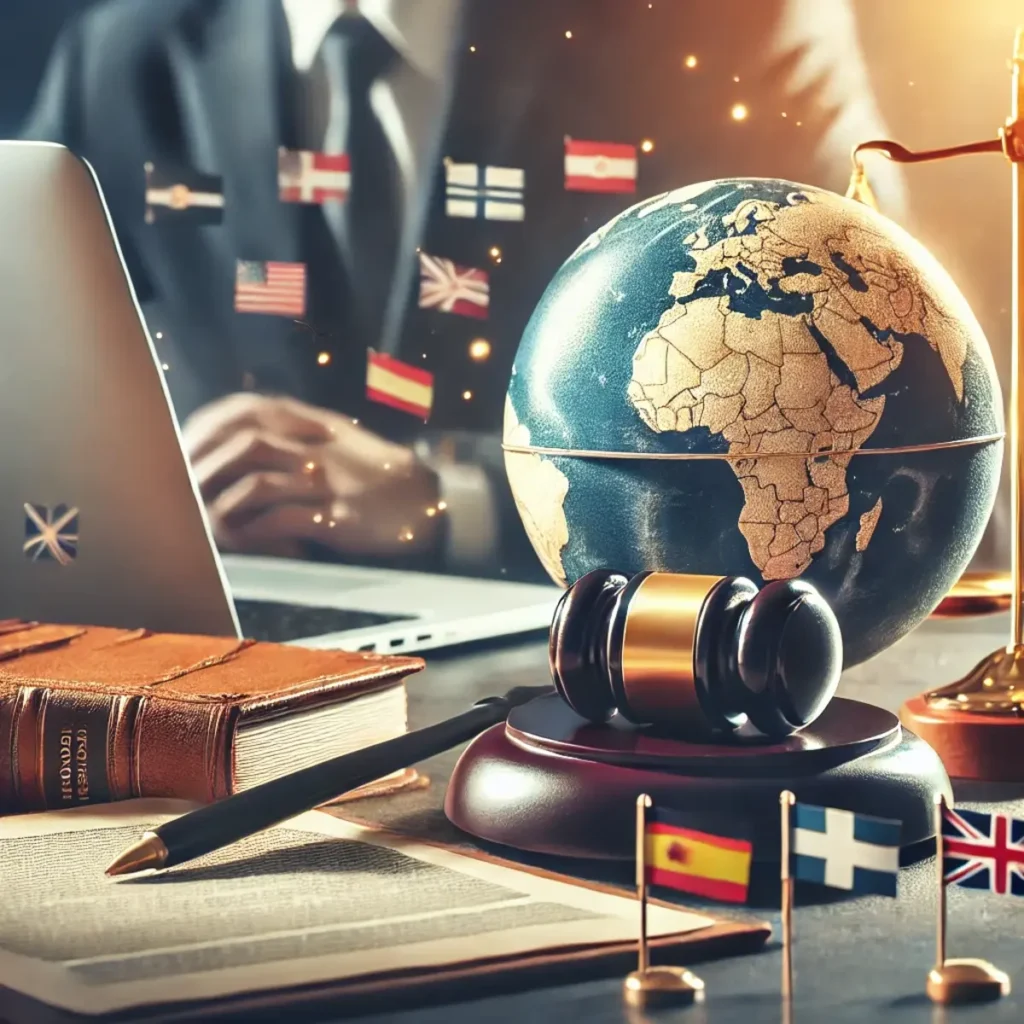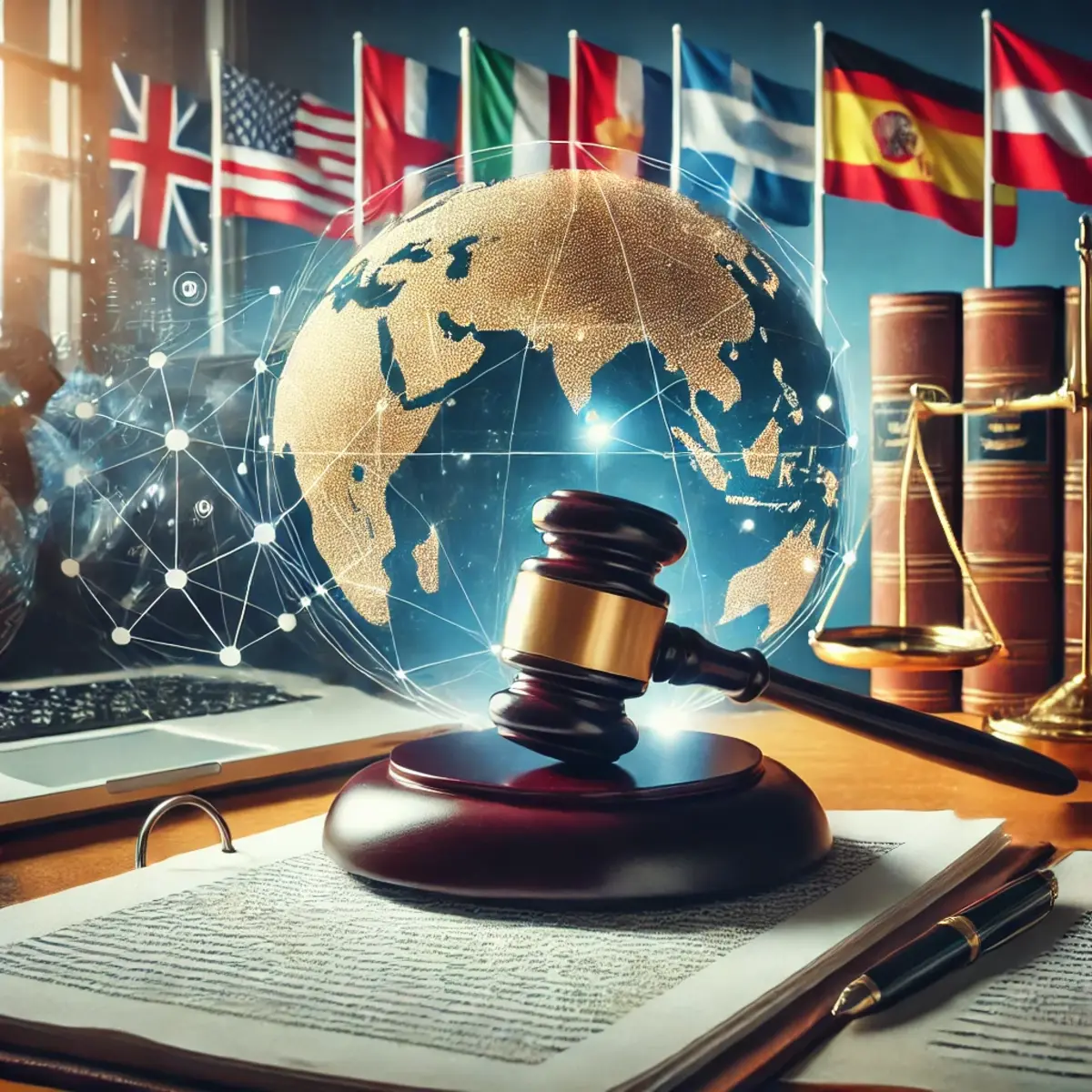Understanding international business law is essential for anyone looking to engage in global commerce. International business law governs the legal transactions that occur across national borders, ensuring smooth and fair trade between countries. This comprehensive guide introduces the fundamental concepts, key organizations, and crucial regulations that shape international business today.
Why Understanding International Business Law Matters
Navigating the complexities of international trade requires a solid grasp of the laws and regulations that govern it. Organizations like the World Trade Organization (WTO) and laws such as the United Nations Convention on Contracts for the International Sale of Goods (CISG) play pivotal roles in facilitating global commerce. For instance, the WTO sets the rules for international trade, influencing how businesses operate worldwide.
Understanding these laws not only helps businesses comply with international standards but also provides a competitive edge. For example, knowledge of the Foreign Corrupt Practices Act (FCPA) can prevent legal pitfalls when operating in different countries.
Key Components of International Business Law
International business law encompasses various components that are crucial for smooth global operations:
- International Trade Agreements: Agreements like the General Agreement on Tariffs and Trade (GATT) reduce trade barriers and promote economic cooperation.
- Contract Law: The CISG provides uniform rules for international sales contracts, simplifying cross-border transactions.
- Intellectual Property Rights: Protecting innovations globally is essential. Laws ensure that intellectual property is respected internationally.
- Dispute Resolution Mechanisms: International arbitration offers a way to resolve disputes outside of court, saving time and resources.
- Compliance with Local Laws: Understanding regional regulations, such as the EU’s General Data Protection Regulation (GDPR), is vital for legal operations.
Common Challenges in International Business Law
While international business offers numerous opportunities, it also presents challenges:
- Legal Complexity: Navigating different legal systems can be daunting. For example, laws in Geneva may differ significantly from those in Singapore.
- Cultural Differences: Misunderstandings due to cultural nuances can lead to contract disputes.
- Regulatory Compliance: Keeping up with laws like the GDPR requires constant vigilance.
- Dispute Resolution: Deciding on jurisdiction and applicable law can complicate legal proceedings.
However, with proper knowledge and preparation, these challenges can be effectively managed.

How to Overcome These Challenges
To successfully navigate international business law, consider the following strategies:
- Educate Yourself: Learn about the legal systems of countries where you do business.
- Consult Legal Experts: Engage attorneys specializing in international law, like those familiar with ICC Rules.
- Use Clear Contracts: Implement detailed agreements specifying jurisdiction and dispute resolution methods.
- Stay Compliant: Regularly update your knowledge on laws such as the FCPA and GDPR.
- Cultural Awareness: Invest time in understanding the business etiquette and cultural norms of other countries.
- Risk Management: Include force majeure clauses to protect against unforeseen events.
- Leverage International Organizations: Utilize resources from bodies like the International Chamber of Commerce (ICC).
Real-World Examples and Case Studies
Many companies have successfully navigated international business law:
- Apple Inc.: Effectively manages intellectual property rights across multiple jurisdictions.
- Coca-Cola: Complies with various international regulations, ensuring global brand consistency.
- Toyota: Uses international arbitration to resolve disputes, minimizing legal costs.
These examples demonstrate that with the right approach, businesses can thrive globally.
Frequently Asked Questions
- What is international business law? International business law governs the legal aspects of international trade and commerce, including contracts, disputes, and regulatory compliance.
- How does understanding international business law benefit businesses? It helps businesses navigate legal complexities, avoid disputes, and ensure compliance with international regulations, leading to smoother operations.
Key Points to Remember
- International business law is essential for global trade success.
- Organizations like the WTO and laws such as the CISG play crucial roles.
- Understanding intellectual property rights and dispute resolution mechanisms is vital.
- Common challenges can be overcome with education and expert advice.
- Real-world examples show successful navigation of international laws.
Mastering international business law opens doors to global opportunities. By understanding key components and proactively addressing challenges, businesses can operate confidently on the world stage. Stay informed, seek expert guidance, and embrace the complexities of international commerce to ensure success.
Next Steps: Consider consulting with an international law expert to assess your business’s compliance with global regulations.
How Much Do Business Lawyers Make?
External Resources
- United Nations Convention on Contracts for the International Sale of Goods (CISG): Provides a uniform framework for international commerce.
- World Trade Organization (WTO): An international body that regulates trade between nations.
- International Chamber of Commerce (ICC): Develops international trade standards and dispute resolution services.
- Foreign Corrupt Practices Act (FCPA): U.S. legislation aimed at preventing bribery of foreign officials.

Jonathan Hartley is a highly regarded senior criminal lawyer with over 15 years of experience in the UK legal system. He began his career at a prestigious law firm in London, where he specialized in both defense and criminal law. Known for his ability to craft compelling defense strategies, Jonathan has successfully represented clients in high-profile cases and earned multiple awards for his contributions to the field of law.
In addition to his legal practice, Jonathan is also an accomplished legal writer, contributing articles to top legal blogs and online platforms. His work not only provides valuable insights into legal matters but also meets Google’s E-E-A-T standards by delivering accurate, reliable, and trustworthy information to readers. Committed to legal ethics and public welfare, Jonathan actively participates in discussions on law and justice while educating the public through his writing.










